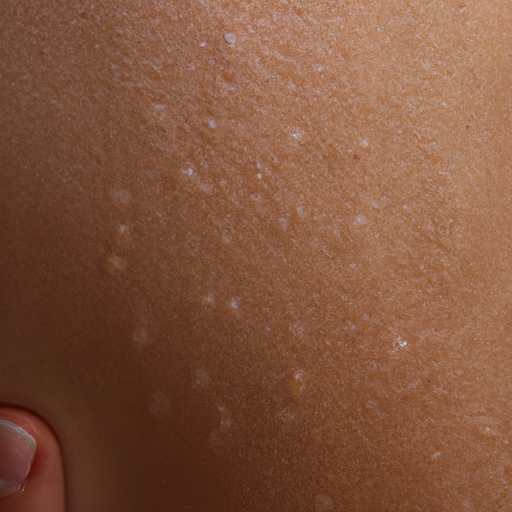As a dermatologist, I have encountered countless patients who are battling with oily skin. This common skin condition is characterized by an excess production of sebum, a natural skin oil that helps protect and hydrate the skin. However, when produced in excess, sebum can lead to a shiny complexion, enlarged pores, and even acne. While oily skin can be frustrating to manage, there are several proven strategies that can help combat this issue. Here are seven effective methods to banish the shine and achieve a balanced complexion.
1. Regular Cleansing: The first step in managing oily skin is regular cleansing. It’s important to wash your face twice daily with a gentle, water-soluble cleanser to remove excess oil and prevent pore clogging. Avoid harsh soaps or detergents that can strip your skin of its natural oils and trigger more oil production.
2. Use of Oil-free and Non-comedogenic Products: When choosing skincare products, opt for those labeled “oil-free” or “non-comedogenic”. These products do not contain ingredients that can clog pores or stimulate oil production. This includes your makeup, sunscreen, and even your hair products, as they can come into contact with your face and contribute to oiliness.
3. Regular Exfoliation: Exfoliating your skin 1-2 times per week can help remove dead skin cells that can clog pores and increase oiliness. However, be careful not to over-exfoliate as this can irritate the skin and stimulate more oil production.
4. Blotting Papers: These thin, small papers are excellent for quick touch-ups throughout the day. They absorb excess oil from the surface of your skin without disturbing your makeup or causing dryness.
5. Hydration is Key: Many people with oily skin avoid moisturizers thinking it will make their skin oilier. However, skipping moisturizer can actually cause your skin to produce more oil to compensate for the lack of hydration. Choose a lightweight, oil-free moisturizer to keep your skin hydrated without adding extra shine.
6. Balanced Diet: What you eat can also impact your skin’s oil production. A diet high in processed foods, sugars, and unhealthy fats can stimulate oil production. Instead, opt for a balanced diet rich in fruits, vegetables, lean proteins, and whole grains to nourish your skin from the inside out.
7. Consult a Dermatologist: If your oily skin persists despite your best efforts, it may be time to consult a dermatologist. We can provide personalized advice and prescribe treatments such as topical retinoids or oral medications to help regulate oil production.
Remember, everyone’s skin is unique and what works for one person may not work for another. It may take some trial and error to find the right combination of products and lifestyle changes that work best for you. However, with patience and consistency, it is possible to manage oily skin and achieve a healthier, more balanced complexion.
In conclusion, while oily skin can be a challenge to manage, it is not impossible. By incorporating these seven strategies into your skincare routine and lifestyle, you can effectively combat excess oil and banish the shine. Remember, the goal is not to eliminate oil completely but to achieve a healthy balance. After all, sebum plays a crucial role in keeping our skin healthy and hydrated. With the right care and attention, you can turn your oily skin into a glowing, radiant complexion.



